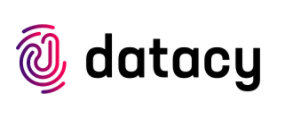
Sell Your Data, Earn Some Money

(Lightspring/Shutterstock)
Your data is fueling the big data and AI revolutions. Don’t you think you should benefit from it? That’s the gist of new movement that puts users in control of their data, as well as the ability to profit from it.
There are a handful of new players working in the user-centered data revolution. One of the most prominent firms is Killi, which launched in May 2018, the same month that the General Data Protection Regulation (GDPR) went into effect. User consent is a core part of GDPR, and it also forms a key part of the business model for Killi, which allows users to control which companies see data about them, in exchange for compensation.
On Killi, users are required to provide basic information, such as birthdate, gender, and ZIP Code, among other pieces of data. They earn points by taking surveys, viewing videos, sharing browsing habits, or sharing transaction data. The more data that users share, the more money they can make.
User data is worth about $500 per month to tech giants like Google and Facebook, Killi founder and CEO Neil Sweeney told the LA Times in December. “We’re trying to give you a seat at the table,” Sweeney told columnist David Lazarus. “For the first time, you’re getting a piece of the pie.”
However, some data rights supporters take issue with the blanket opt-in for data that Killi users are required to sign. Yes, users get to financially benefit from their data, and have some control over who they share their data with. But they do so at the expense of their own privacy, they say.
“Low-income communities, who already tend to be marginalised, exploited, and subjected to heightened levels of surveillance, are also the most likely to feel pressured to give up their privacy under the kind of system these apps put forward,” Carolyn Tackett, the deputy director of digital rights group Access Now, told Reuters in May 2020.
Now a new company is emerging that seeks to put privacy back into the data exchange. Datacy gives users more control over what data they choose to share, according to Datacy CEO and founder Paroma Indilo.
“We are essentially creating a platform, a marketplace in the community, to enable high quality, ethical, and transparent data exchange that is more considerate and less invasive and that respects users’ privacy and consent,” Indilo told Datanami.
“Everything that is collected by the platform is collected by the users, and they decide what is collected,” she continued. “We give them that granular visibility…so they can make an informed choice what they want to share and what they don’t want to share. And they can also choose who they want to share it with and for what purpose.”
Like other data exchanges, data is collected with Datacy using a browser plug-in or an API to a mobile app. All user data is aggregated and anonymized and sold in blocks of 3,000 users to eliminate the ability to reverse-engineer it to find out identities. The company takes a 15% cut, and returns the rest to users.
Users can earn between $5 and $7 per month using Datacy, Indilo said. As the service ramps up and more users and businesses sign up, the compensation will increase to around $50 to $60 per month, she said.
“On the business side, we are essentially giving businesses a choice to get data ethically and to say no to ambiguous practices which are prevailing in the data market today,” Indilo said. “Through Datacy, businesses can get complete, accurate and ethically sourced consumer insights directly from the users themselves, which will allow them to gain an unmanipulated and unprecedented visibility and understanding of their target customers.”
Datacy is currently in a private pilot and is not yet generally available. It recently completed a private beta with a few hundred users, and is getting close to opening up the platform to its wait list, which numbers about 10,000 users, Indilo said.
The private pilot revealed what users really value, Inidilo said. “What we realized users told us over and over again, they wanted more control of what data is being collected and who it’s being shared with,” she said. “So we actually went back and built up these features to give users that power over exactly what is being collected, more visibility over what is being collected, and more control over how is it being shared.”
Last week, Datacy announced it has completed a $2.4 million seed round of financing.
Related Items:
Crazy Idea No. 46: Making Big Data Beneficial for All
Big Data Backlash: A Rights Movement Gains Steam
Who Controls Our Algorithmic Future?































